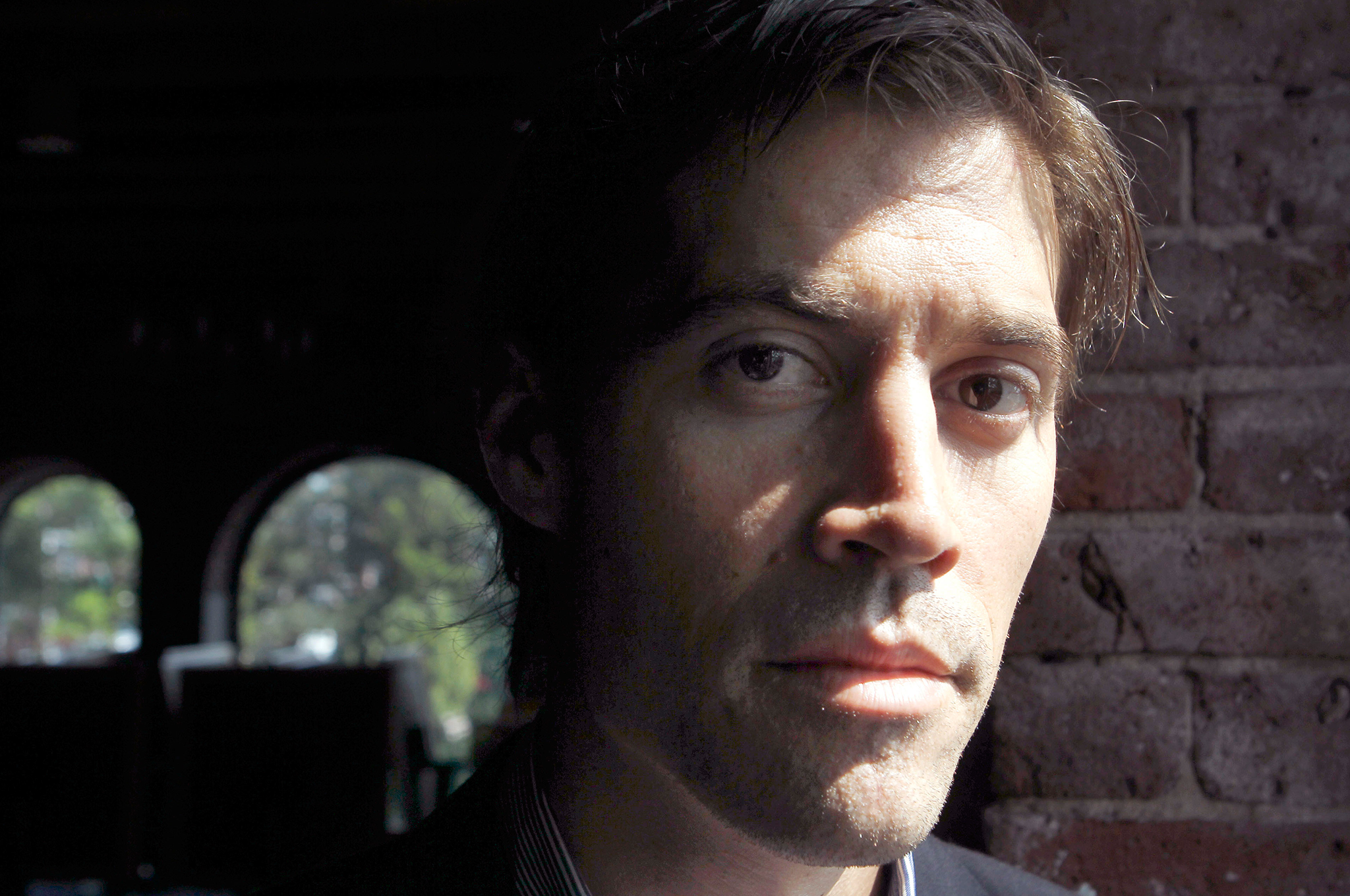Voices in Danger: Syria is the most dangerous country in the world for journalists
In the last 24 months foreign reporters have come under unprecedented attack

Your support helps us to tell the story
From reproductive rights to climate change to Big Tech, The Independent is on the ground when the story is developing. Whether it's investigating the financials of Elon Musk's pro-Trump PAC or producing our latest documentary, 'The A Word', which shines a light on the American women fighting for reproductive rights, we know how important it is to parse out the facts from the messaging.
At such a critical moment in US history, we need reporters on the ground. Your donation allows us to keep sending journalists to speak to both sides of the story.
The Independent is trusted by Americans across the entire political spectrum. And unlike many other quality news outlets, we choose not to lock Americans out of our reporting and analysis with paywalls. We believe quality journalism should be available to everyone, paid for by those who can afford it.
Your support makes all the difference.The gruesome beheading of American journalist James Foley by Islamic State of Iraq and Sham (Isis), a rebel group once affiliated with Al-Qaeda, has sent shockwaves through the international community.
The fate of Steven Joel Sotloff, who is being held captive by ISIS along with other journalists held by related militant groups, also hangs in the balance. ISIS's latest appalling act of horror conveys another grim message of danger to all journalists in the region.
Foley was kidnapped in November 2012 when his car was stopped at gunpoint by Isis militants in a town near Taftanaz in the Idlib province of Syria. He had left an internet cafe earlier that day. A year after his capture, Foley's mother went on air to publicly plead for her son's release, but to no avail. He was in captivity for over 600 days before his untimely death.
“The barbaric murder of journalist James Foley, kidnapped in Syria and held almost two years, sickens all decent people. Foley went to Syria to show the plight of the Syrian people, to bear witness to their fight, and in so doing to fight for press freedom,” said Sandra Mims Rowe, the Chairman of the Committee to Protect Journalists (CPJ).
Over the last 24 months journalists in Syria and Iraq have been killed by suicide bombings, kidnapped at gunpoint, and attacked in newsrooms by Isis and related terrorist groups. As Isis and their henchmen sweep through Iraq and Syria, the group attacks what remains of local media channels. CPJ has declared Syria “the most dangerous country in the world for journalists.” Iraq is close behind.
In June 2014, Al-Sharqiya’s correspondent in Diyala province of Iraq, Halmi Kamal, was kidnapped and held by armed terrorists for several hours. In Mosul, Isis fighters seized control of Al-Mosuliya TV, Sama Al-Mosul and Al-Ghad and have closed down a number of other local TV stations. In Tikrit, gunmen staged a suicide attack in the offices of Salaheddin TV killing five journalists in December 2013. ISIS and other Sunni militant groups are believed to be responsible for the majority of at least 10 journalists killed last year in Iraq, according to CPJ research.
NBC correspondent Richard Engel and his crew were held captive in the northern region of Syria for several days in December 2012. Shortly after their release, an unidentified Syrian terrorist group released a video entitled “Journalists dogs in the trap”. The footage shows Engel, three others members of the NBC production team and a journalist working for CNN and ABC being held captive. The five sit shoulder to shoulder on the floor in what appears to be a one-room village hut.
The increased danger of reporting on the Syrian conflict two years ago lead many journalists to tell CPJ that entering Syria was too risky. But when freelance journalists Jonathan Alpeyrie and Matthew Schrier returned home safely in the summer of 2013, after months of detention in rebel hands, it offered hope. International journalists began re-entering the territories once Isis withdrew from some key positions in northern Syria, according the CPJ research.
More than 80 journalists have been kidnapped in Syria, some of which go unpublicised. CPJ estimates that approximately 20 journalists, both local and international, are currently missing in Syria. Many of them are believed to be held by Isis.
Join our commenting forum
Join thought-provoking conversations, follow other Independent readers and see their replies
Comments